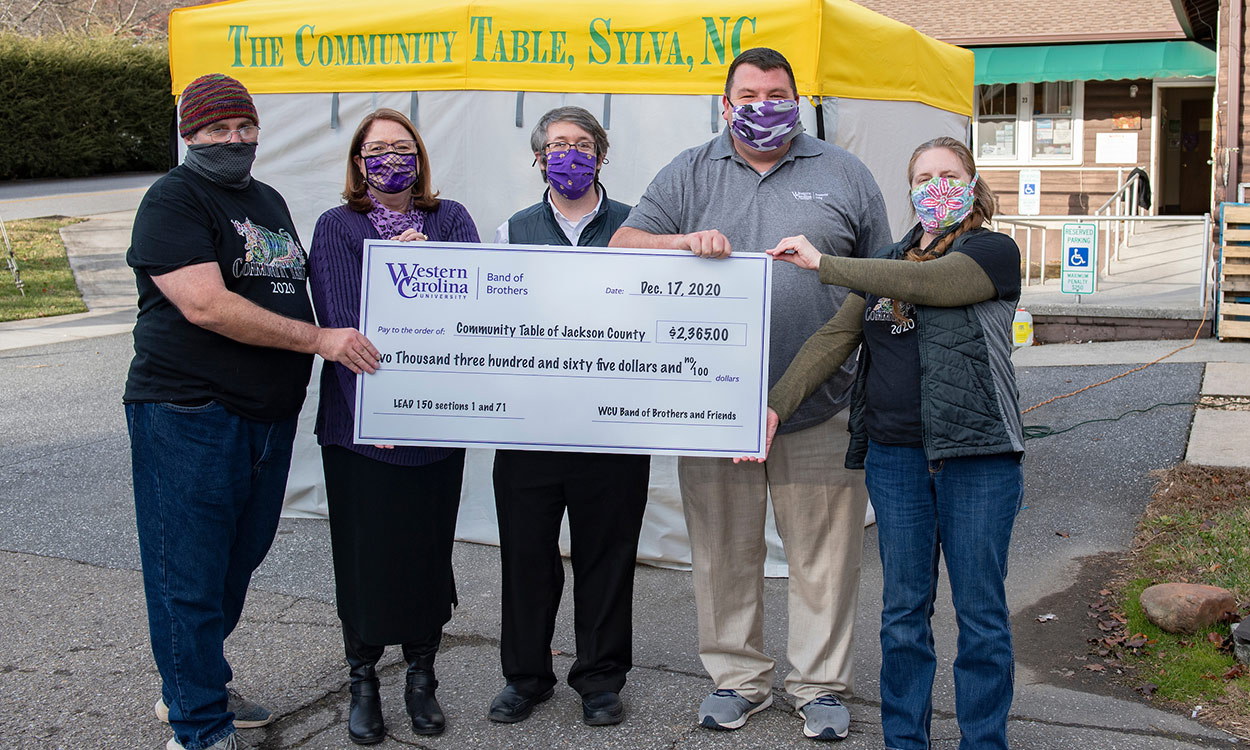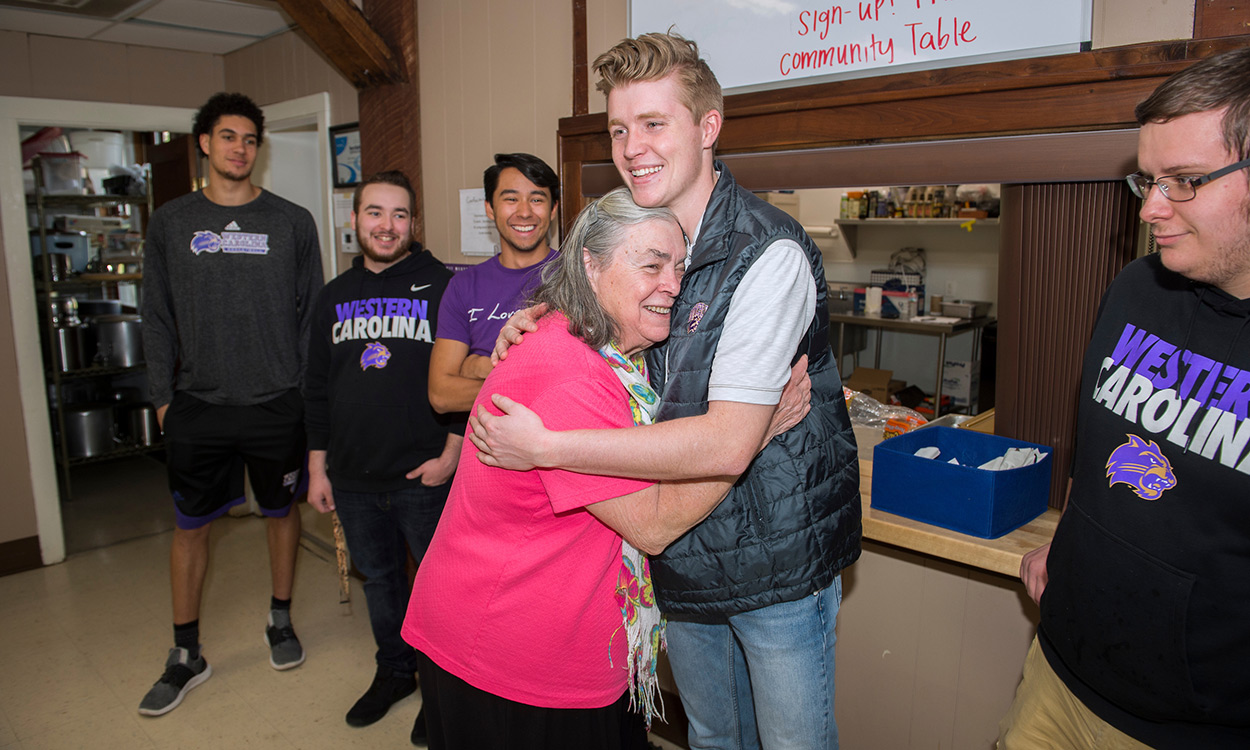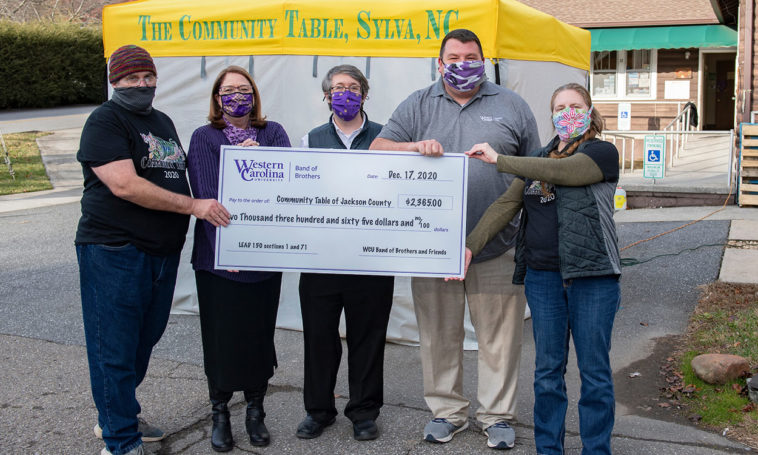WCU’s own ‘Band of Brothers’ contribute to Sylva food bank, soup kitchen – Western Carolina University News
By Geoff Cantrell
From left to right: Gary Wood, Community Table kitchen manager and volunteer coordinator;
WCU Chancellor Kelli Brown, Josh Thompson, director of orientation and Band of Brothers
class instructor; Brian Boyer, residential case manager and Band of Brothers class
instructor; and Paige Christie, Community Table director.
The longstanding support by Western Carolina University in fighting local hunger isn’t
taking a holiday break, even at the height of the pandemic.
On Thursday, Dec. 17, representatives of WCU’s Band of Brothers leadership class,
along with Chancellor Kelli R. Brown, presented a check for $2,365 to the Community Table, a Sylva nonprofit food pantry and dining room that provides nutritious
meals to neighbors in need in a welcoming environment.
This semester, a crowdfunding effort was started by the class with a $750 goal. “We
raised triple that amount,” said Brian Boyer, instructor and residential case manager for the Department of Residential Living.

Band of Brothers member Josh Kelley receives a big hug from Community Table guest
and friend Melba.
“Band of Brothers is, ultimately, a leadership class that is designed to help students
think critically about who they are, and perhaps most importantly the ‘why’ of they
are who they are,” he said. “The Community Table has occupied my Friday afternoons for more than 11 years and has
been a part of the Band of Brothers curriculum for almost a decade. And now, WCU students
basically run the place – supervised, of course – for the Friday dinner shift. They
wait tables, serve drinks, plate the food, wash dishes, make food boxes for patrons,
and do all of the cleanup. It is quite remarkable to see the work that they do there,
and the patrons love them.”
A local newspaper recently reported that food insecurity in Western North Carolina has nearly tripled during the COVID-19 pandemic.
The article in the Smoky Mountain News said it’s no longer those who are unsheltered
or the elderly in need, but also people unemployed or underemployed due to the pandemic,
or people who’ve had to leave their job to stay at home with children, and younger
families who are having a hard time paying all their bills right now.
“Working at the Community Table allowed me to meet and serve so many amazing people,”
said WCU student Kyle Meng, of Roswell, Georgia. “I am truly grateful for the experiences
I had there.”
Published at Fri, 18 Dec 2020 14:43:17 +0000





Comments
Loading…